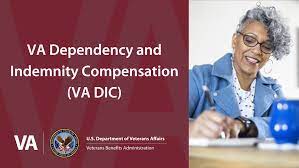VA Benefits for Widows in 2021
For widows of veterans, the Department of Veterans Affairs (VA) offers a range of benefits to provide support and assistance. These benefits can help widows cope with the loss of their spouse and ensure they receive the care they deserve.
Dependency and Indemnity Compensation (DIC)
One of the key benefits available to widows is Dependency and Indemnity Compensation (DIC). DIC is a tax-free monetary benefit paid to eligible survivors of military service members who died in the line of duty or as a result of a service-related injury or disease.
To qualify for DIC benefits, widows must meet certain criteria set by the VA. This includes being the surviving spouse of a veteran who served in active duty or active duty for training, and whose death was related to their military service.
Benefits Covered by DIC
DIC benefits provide financial support to widows to help them maintain their standard of living. In addition to the monthly monetary benefit, DIC may also cover:
- Health care benefits
- Educational assistance
- Burial benefits
- Home loan guarantees
- Veterans’ preference in federal employment
Applying for DIC Benefits
To apply for DIC benefits, widows can contact their nearest VA regional office or apply online through the VA’s website. The application process may require providing documentation such as marriage certificates, death certificates, and military service records.
It’s important for widows to seek assistance from organizations that specialize in helping veterans’ families navigate the application process. These organizations can provide guidance and support throughout the application process and ensure that widows receive all the benefits they are entitled to.
In Conclusion
In 2021, VA benefits for widows continue to play a crucial role in providing support and assistance to those who have lost their spouses due to military service. By understanding and accessing these benefits, widows can receive the care and assistance they need during difficult times.
Maximizing DIC Benefits: Essential Tips for Widows in 2021
- Widows may be eligible for Social Security benefits based on their deceased spouse’s earnings record.
- The amount of benefits a widow can receive is dependent on various factors, such as the deceased spouse’s earnings and the widow’s age.
- Widows can generally start receiving benefits as early as age 60, or at age 50 if disabled.
- Remarriage before the age of 60 may impact a widow’s eligibility for benefits, but remarriage after that age usually does not affect benefits.
- Widows who have not reached full retirement age may face reduced benefits if they continue to work while receiving DIC benefits.
- It is important for widows to understand the eligibility requirements and rules regarding DIC benefits to maximize their financial support.
Widows may be eligible for Social Security benefits based on their deceased spouse’s earnings record.
Widows who are eligible for Dependency and Indemnity Compensation (DIC) benefits in 2021 should also be aware that they may qualify for Social Security benefits based on their deceased spouse’s earnings record. This additional support can provide widows with financial assistance and security during a challenging time. By exploring all available benefits, widows can ensure they are receiving the maximum support they are entitled to, helping them navigate the complexities of managing their finances after the loss of their spouse.
The amount of benefits a widow can receive is dependent on various factors, such as the deceased spouse’s earnings and the widow’s age.
The amount of Dependency and Indemnity Compensation (DIC) benefits a widow can receive in 2021 is determined by several factors, including the earnings of the deceased spouse and the age of the widow. These factors play a crucial role in calculating the monthly monetary benefit that widows are eligible to receive. By considering these variables, the Department of Veterans Affairs ensures that widows receive an appropriate level of financial support to help them cope with their loss and maintain their quality of life.
Widows can generally start receiving benefits as early as age 60, or at age 50 if disabled.
Widows who are eligible for Dependency and Indemnity Compensation (DIC) benefits in 2021 have the opportunity to start receiving support as early as age 60. For those who are disabled, benefits can be accessed even earlier, starting at age 50. This provision offers widows a valuable lifeline of financial assistance during challenging times, ensuring that they can receive the necessary support and care when they need it most. By understanding these age-related eligibility criteria, widows can plan ahead and access the benefits they are entitled to in a timely manner.
Remarriage before the age of 60 may impact a widow’s eligibility for benefits, but remarriage after that age usually does not affect benefits.
When it comes to DIC benefits for widows in 2021, it’s important to consider the impact of remarriage on eligibility. If a widow remarries before the age of 60, it may affect her eligibility for benefits. However, if the remarriage occurs after the age of 60, it typically does not impact the widow’s benefits. This distinction is crucial for widows to be aware of as they navigate their eligibility for DIC benefits and plan for their future financial security.
Widows who have not reached full retirement age may face reduced benefits if they continue to work while receiving DIC benefits.
Widows who have not reached full retirement age and are receiving DIC benefits should be aware that continuing to work may result in reduced benefits. The Department of Veterans Affairs considers income from employment when determining the amount of DIC benefits a widow is eligible to receive. It’s important for widows to understand the impact of their earnings on their DIC benefits and to consult with a VA representative to ensure they are informed about any potential reductions in benefits based on their employment status.
It is important for widows to understand the eligibility requirements and rules regarding DIC benefits to maximize their financial support.
Understanding the eligibility requirements and rules regarding Dependency and Indemnity Compensation (DIC) benefits is crucial for widows in 2021 to maximize their financial support. By familiarizing themselves with the criteria set by the Department of Veterans Affairs, widows can ensure they meet the necessary qualifications to receive DIC benefits. Being informed about the application process and documentation needed can help widows navigate the system more effectively and access the support they are entitled to after the loss of their spouse who served in the military.



